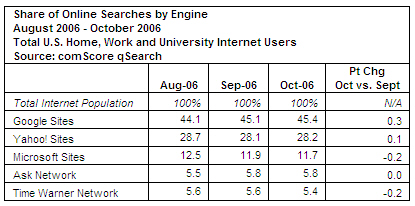Ask.com's Trojan Horse -- AskCity

Ask.com isn’t suffering from an inferiority complex, despite being fourth in the search engine rankings. Company CEO Jim Lanzone told me that he expects to reach double digit growth for his search engine, which currently is less than 6 percent according to various measurement services. He pointed to the fact that Ask, along with Google, are the only two search engines that saw growth this year in search share.

“We are just at the beginning. People don’t switch search engines overnight,” Lanzone said. “First we want to be added to their online repertoire, and then as part of their online experience, and over time they will know and appreciate our tools, which will increase usage of our site.”
Ask does provide a better user experience search than its competitors with its Teoma ExpertRank algorithms, which break the Web down by topic and then analyzes the sites that cover the subject and how topics relate to one another. For example, search on "Bob Dylan" and search queries related to the concept (Bob Dylan) are shown on the right side of the page.However, Ask's index is not a broad or up to date as competitive indices, doesn't have the portal services (email, instant messaging, calendar, etc.) to keep users in the tent and is far smaller (450 employees) than Google, Microsoft and Yahoo search teams focusing on search. Lanzone half seriously told me that Microsoft knows all the vacation dates of Ask's engineers. "Our engineers like to have an impact and not get lost in the shuffle," he said. "They don't want to be in a development lab and not have people use what they develop." That sounds more like wishful thinking than reality. But, Ask's engineering teams are not located in the heart of Silicon Valley or Seattle; about half are in Edison, New Jersey and the team the build the foundation of Ask's image and blog search is in Pisa, Italy.
Lanzone's belief is that as users become more sophisticated in using the Web, they will seek out a superior search engine. He said that Ask is taking a "premier lager" approach. "We are not going to do all things, but we will concentrate on ingredients of our product, being a standalone search engine. We will also do some advertising, which is another way around the mountain because our brand is easy to understand, Lanzone said.
He didn't have a timeframe in which Ask would reach double-digit market share, but Ask may have Trojan Horse in its new local search, AskCity, which is being launched today. AskCity's interface reduces the number of clicks and context switches, or pogo sticking as Lanzone said, to complete a task. In my experience using AskCity over the weekend, it sets a higher bar for local search, and is more of a true Web of interlaced information, integrating businesses/services, events, movies and maps and directions in a single, AJAXy interface.
"Local search is a top five search category and accounts for about 10 percent of searches," Lanzone said. "But in our research, local search had the lowest user satisfaction and less repeat usage. What people want is more ways to accomplish tasks in a shorter period of time. We can do more to reduce the distance between point A and B, whittle down the funnel to reach a search result."
AskCity is searching across and integrating data from more than 25 companies, include the stable of parent company IAC's properties, such as Citysearch, Ticketmaster, ServiceMagic, TicketWeb, Tripadvisor and ReserveAmerica. "There was no forced IAC synergy in this product," Lanzone claimed, noting that the IAC properties used in AskCity are leaders in their categories.
"We were able to take the raw ingredients [of IAC properties], not just feeds and cook up our own recipe using those ingredients. For example, with Ticketmaster or TicketWeb event data, users can click to transact on the site without leaving AskCity," Lanzone said. Fandango (movie tickets), OpenTable (restaurant reservations) also ServiceMagic (services) have one-click access to transact.? In addition, AskCity is crawling sites such as InsiderPages and Yelp.
As with Ask.com search, AskCity automatically offers suggestions, related queries, to narrow or expand searches by neighborhood, cuisine, movie genre, categories, venues, etc. AskCity also has "doodling" tools for annotating maps and a snapshot feature for saving a map or emailing it.
AskCity doesn't yet carry advertising or sponsored search results. "There will be some monetiziation with local, but it's not a short term objective. Whenever we do a new vertical, we focus on building the audience before monetization." Of course, IAC could see increase transaction and search volume across the properties used within AskCity.
Lanzone told me that he doesn't have conquer Google, just carve out a healthy piece of the immensely lucrative search, which is the number one Web activity. A percentage share of growth can mean $100 million in revenue, he said. As Ask grows, so grows Google--Google provides ad services for Ask through 2008, at which point Ask is likely to hook up with Microsoft, which is in need of big search partners for its fledgling adCenter service.
"People overate the issue of whether we have to beat Google to win," Lanzone continued. "By having a superior product, we can create an audience of loyal primary users." For Lanzone having fewer but more active search users than Google, Yahoo and Microsoft, is the preferable approach to gaining double-digit growth. With AskCity, Ask offers a compelling reason for those who have a Google, Microsoft or Yahoo habit to give the number four search engine a try...